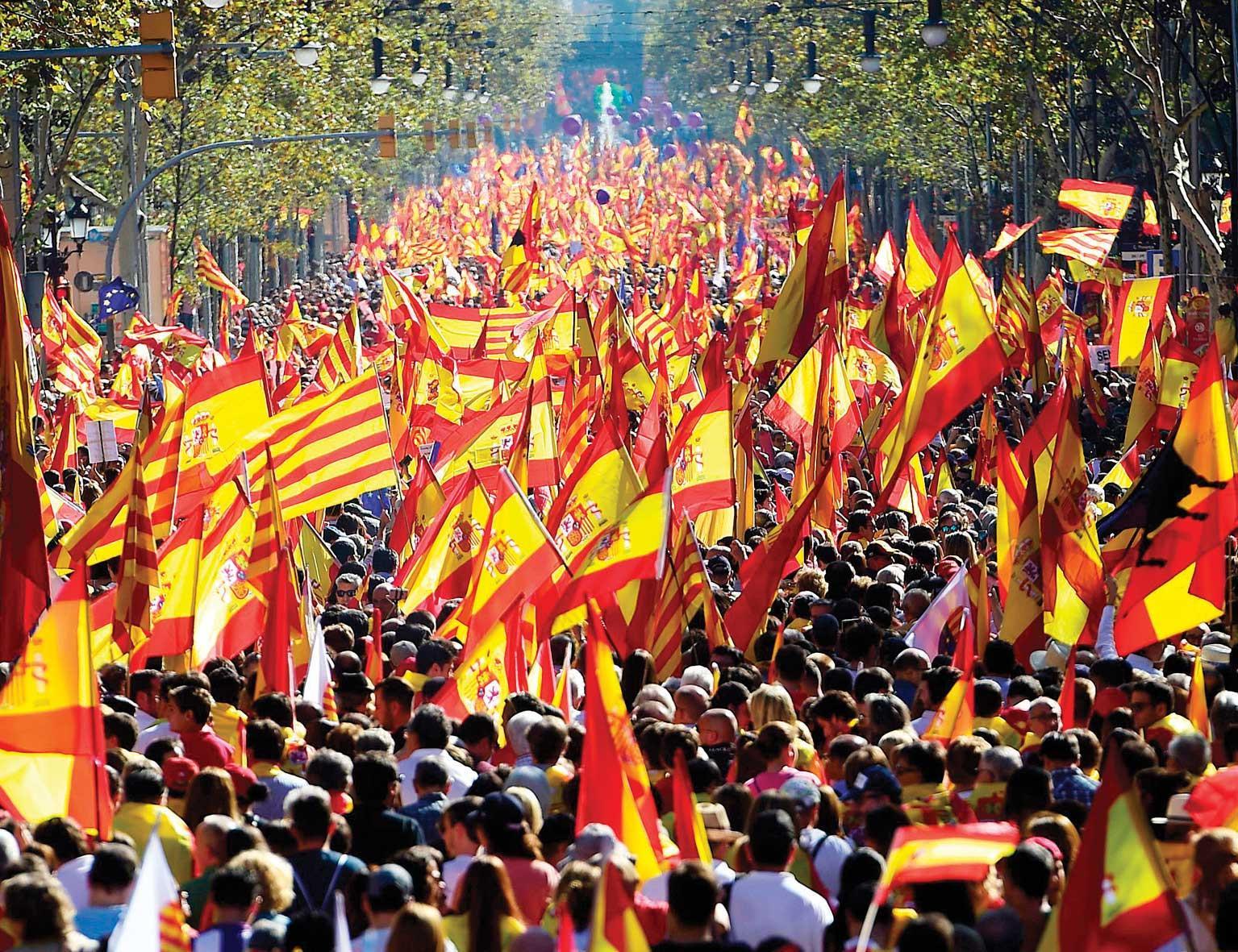Rebellion charges sought against fired Catalan leaders
BARCELONA

Spain’s state prosecutor said on Oct. 30 that he would seek charges of rebellion, sedition and embezzlement against members of Catalonia’s ousted secessionist government, pushing the crisis over the region’s independence declaration into an uncertain new phase.
Chief prosecutor Jose Manuel Maza said he would ask judges for preventive measures against the politicians and the governing body of the Catalan parliament that allowed a vote to declare independence last week. He didn’t specify if those would include their immediate arrest and detention before trial.
The rebellion, sedition and embezzlement charges carry maximum sentences of 30, 15 and six years in prison, respectively. It wasn’t immediately clear when judges would rule on the prosecutors’ request.
Maza didn’t name any of those facing charges, but they include regional leader Carles Puigdemont, his No. 2 Oriol Junqueras and Catalan parliamentary speaker Carme Forcadell.
The announcement came as Catalonia’s civil servants returned to work for the first time since Spain dismissed the separatist regional government and imposed direct control.
Speculation raged about the whereabouts of Puigdemont, as Catalans watched and wondered whether the ousted leaders would defy their firing and face even more possible criminal charges.
In addition to the sedition charges, Spain’s government has said the fired leaders could be charged with usurping others’ functions if they attempt to carry on working.
As staff arrived at the headquarters of the Catalan government in Barcelona, Puigdemont posted a photo on Instagram of a courtyard at the building. Both the Catalan and Spanish national flags waved from the top of the building.
The ambiguous Instagram post, accompanied by the words “Good morning” in Catalan and a smiley emoticon, left many guessing whether Puigdemont was inside the building. There was no indication of when the photo was taken.
As dozens of journalists, curious onlookers and bemused tourists gathered in the square outside the Gothic government palace in central Barcelona, residents expressed confusion about who was actually in charge of Catalonia.
“I don’t know - the Catalan government says they are in charge, but the Spanish government says they are,” said Cristina Guillen, an employee in a nearby bag shop. “So I have no idea, really.
“What I really think is that nobody is in charge right now,” she said.
At least one portrait of Puigdemont was still hanging on a wall inside the Catalan government’s Generalitat building.
At least one member of the ousted government defied his dismissal by showing up at work and posting a photo on Twitter from his formal office.
“In the office, exercising the responsibilities entrusted to us by the people of Catalonia,” said Josep Rull, who until last week was the region’s top official in charge of territorial affairs.
Two police officers entered and left the building, followed minutes later by Rull, who told reporters and supporters that he would continue carrying out his agenda.
But there were no official events listed on the regional government’s public agenda that is published online daily. Meanwhile, the two separatist parties in the former Catalan governing coalition held separate meetings to decide their next move.
On Oct. 29, hundreds of thousands took part in an anti-independence demonstration in Barcelona, calling for Catalonia to remain in Spain and backing Rajoy’s use of unprecedented constitutional powers to seize wrest control from the pro-independence regional administration.
“We won’t let Spain be torn apart into pieces,” read one banner. “The awakening of a silenced nation,” read another.
“We have organized ourselves late, but we are here to show that there is a majority of Catalans that are no longer silent and that no longer want to be silenced,” said Alex Ramos, head of Catalan Civil Society, a pro-union grassroots group.
The organizers said more than 1 million people turned out but police put the figure at 300,000.
Many who oppose independence fear the political turmoil in Catalonia could have a severe economic impact, both in the region and on Spain as a whole.
Some 1,700 companies have already relocated their headquarters to other parts of Spain in recent weeks amid the uncertainty.
















